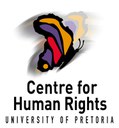
The Minister of Justice and Correctional Services, Hon Michael Masutha has appointed the Director of the Dullah Omar Institute, Prof Jaap de Visser, as a member of the advisory committee of the South African Law Reform Commission.

The Minister of Justice and Correctional Services, Hon Michael Masutha has appointed the Director of the Dullah Omar Institute, Prof Jaap de Visser, as a member of the advisory committee of the South African Law Reform Commission.

The issue of student hunger on university campuses has gained prominence in light of the #feesmustfall movement that has encapsulated South Africa tertiary institutions since 2015. While there are no tangible statistics that reflect the scope of the problem, the issue of students lacking basic needs, both food and shelter, has gained significant traction among university administrators.

The SARChI in Multilevel Government, Law and Policy organised a policy dialogue to interrogate Zimbabwe’s harmonised elections of July 2018. The policy dialogue which took place on 14 August 2018 at the School of Public Health (UWC) interrogated several questions relating to both the electoral process and outcome.

Topic: The Zimbabwe Elections of July 2018 “A missed opportunity or the defining moment of the second republic”
08 August 2018 - The provincial legislatures oversee and make the law. But when it comes to sexual harassment they seem to think they do not need the law. The #NotOurLeaders campaign has written repeatedly to all nine provincial legislatures and our four largest political parties requesting copies of their sexual harassment policies. To date, we have only received copies of two sexual harassment policies.

The Dullah Omar Institute is delighted to announce that, three LLM/MPhil in Human Rights and Democratisation in Africa, students from Centre for Human Rights, University of Pretoria joined the institute. The students will be doing their internship at the institute until December.

The Dullah Omar Institute visited Someleze Education Centre, a crèche in Wallacedene, as part of the Institute’s Mandela Day initiatives.

The Dullah Omar Institute is delighted to announce that the South African Minister of Higher Education and Training, Honourable Grace Naledi Mandisa Pandor is set to deliver the 12th Dullah Omar Memorial Lecture on 09 October 2018.

45% of councillors in South Africa fear violence, 25% are pressurised around tenders and 32% prefer ‘getting this done’ over consultation. These were some of the statistics discussed during the seminar on “Voice and Accountability: What Councillors Say”, hosted by the Dullah Omar Institute, in collaboration with the South African Local Government Association.
Twice a year the University of Fribourg offers scholarships to young researchers who would like to undertake a research stay on a doctoral or post-doctoral level.

The Socio Economic Rights Project (SERP) in conjunction with the Kenya Legal and Ethical Issues Network on HIV and AIDS (KELIN), held a colloquium on the role of regional/sub-regional human rights bodies in advancing sexual and reproductive health and rights (SRHR) in Africa, from the 28 – 29 June 2018.
It remains the case that too many people, especially the poor and other disadvantaged groups, are arrested and even detained for the transgression of minor offences, such as loitering, being a ‘rogue and vagabond’, use of abusive language, disorderly behaviour, public insult and being idle. Many of these offences date back to the colonial-era. The 12 partner organisations of the campaign on the Decriminalisation and Declassification of Petty Offences in Africa have as their collective aim reform in law, policy and practice that would address the arbitrary and discriminatory nature of these laws and by-laws and their enforcement.